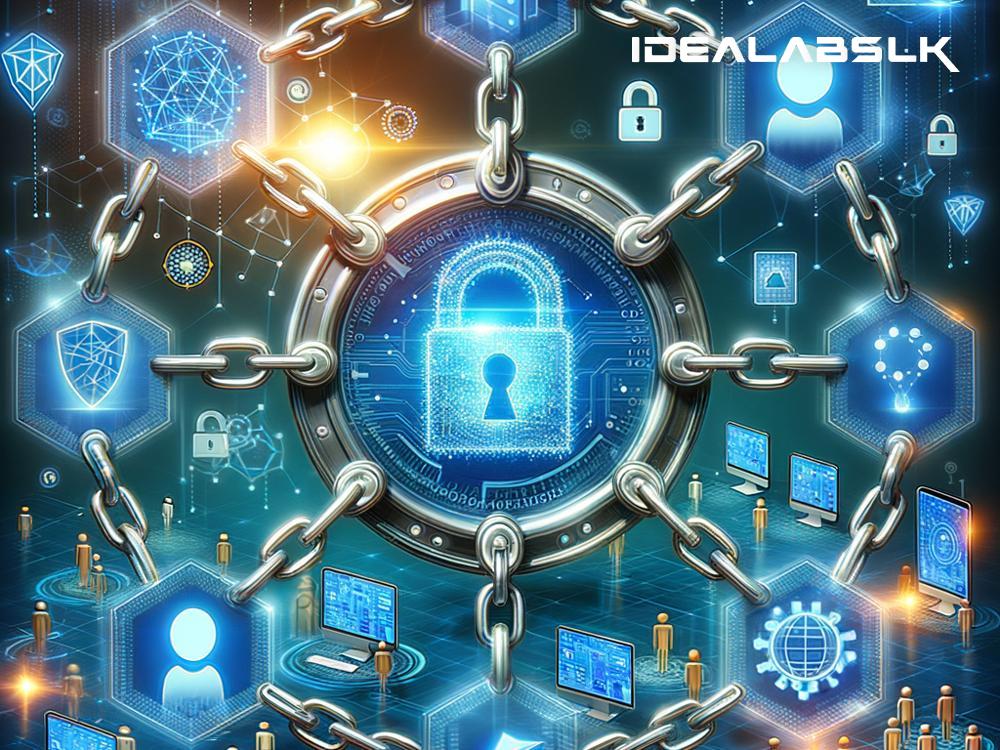Exploring the Role of Blockchain in Digital Identity
In today's digital world, proving who you are online is as crucial as it is in the real world. From signing up for a new social media account to opening a bank account online, your identity needs to be verified every step of the way. Traditionally, this process involves various documents and credentials, which can be cumbersome and not entirely secure. Enter blockchain, a technology that's promising to revolutionize how we handle digital identity, making it more secure, efficient, and private.
What is Blockchain?
Imagine a digital ledger that's not stored in one single place but distributed across several computers. This ledger records transactions in blocks, and once a block is filled, it's linked to the previous one, forming a chain. Each block is secured using cryptography, making it tamper-resistant. Blockchain is the technology behind cryptocurrencies like Bitcoin, but its potential applications go far beyond just financial transactions.
The Problem with Current Digital Identity Systems
Most of us are familiar with the hassle of managing multiple usernames and passwords for different online services. Not only is this inconvenient, but it's also insecure. Data breaches have become all too common, exposing sensitive personal information. Furthermore, the current systems rely heavily on centralized authorities (like government institutions) to validate identities, which can lead to inefficiencies and privacy concerns.
How Blockchain Can Help
Blockchain offers a decentralized approach to digital identity, shifting the control from central authorities to the individual. Here's how it can change the game:
1. Security:
Because blockchain is immutable and encrypted, it's significantly more secure than traditional identity systems. Once your identity information is recorded on a blockchain, altering it without authorization is practically impossible.
2. Privacy:
Blockchain allows for something called "selective disclosure." This means you can choose exactly what information to share and with whom. For example, if you need to prove your age, you can share just that piece of information without revealing your birth date.
3. Efficiency:
Imagine not having to fill out forms with the same information every time you sign up for a new service. With blockchain, your digital identity could be verified instantly, making the process much more efficient.
4. Ownership:
In the blockchain world, you own your personal data. Instead of your information being stored in a database owned by a company or government, you have the keys to your digital identity, giving you more control.
Real-World Applications
Several projects are exploring blockchain for digital identity. For instance, Estonia has implemented a blockchain-based e-Residency program, allowing global citizens to start and manage an EU-based company online. Meanwhile, companies like Microsoft are working on decentralized identity solutions that give users more control over their personal information.
Challenges Ahead
While the potential of blockchain for digital identity is immense, there are challenges to overcome. Scalability, for example, is a concern. Blockchains can become slower and more expensive to use as more transactions are added. Also, for a blockchain-based identity system to work, it needs to be universally adopted – a challenging feat given the fragmented nature of today's digital ecosystems.
Moreover, there are privacy and regulatory challenges. Ensuring that blockchain solutions comply with laws like the EU's General Data Protection Regulation (GDPR) is crucial. Additionally, educating the public and building trust in a new system will take time and effort.
The Road to a Blockchain-Based Identity
The transition to blockchain-based digital identities won't happen overnight. It requires collaboration between governments, private sectors, and individuals. However, the benefits – enhanced security, privacy, and convenience – make it a journey worth embarking on.
In a world where our lives are increasingly online, a secure and convenient way to manage our identities is more important than ever. Blockchain holds the promise of transforming how we assert our identity in the digital realm. By putting control back into the hands of individuals and making identity verification more secure and efficient, blockchain could very well be the backbone of the future's digital identity systems. As we continue to explore and develop these technologies, it's an exciting time to imagine a world where proving who you are online is seamless, secure, and in your control.

